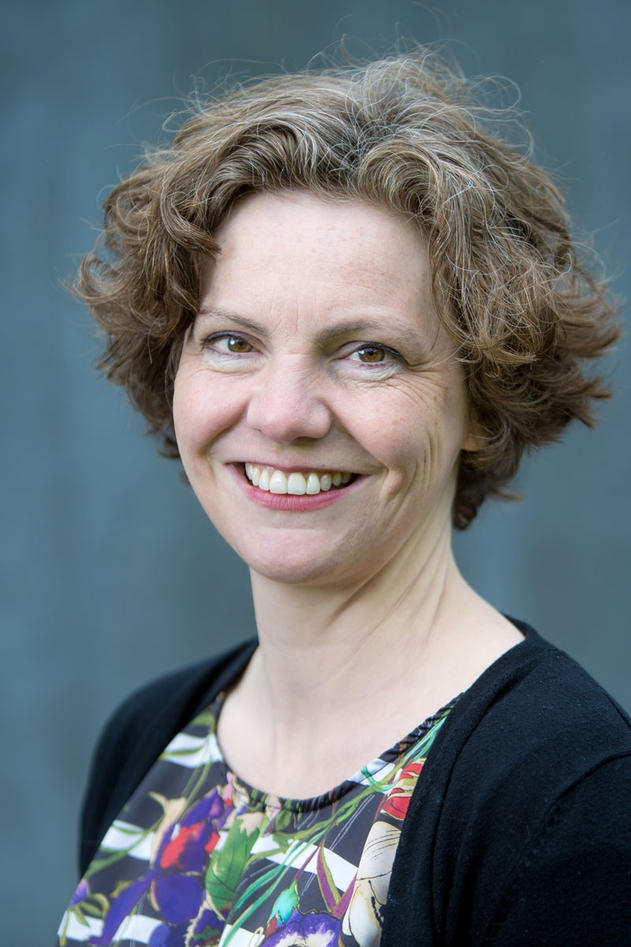Humanities scholars attract foreign researchers to Bergen
Thanks to EU funding, the Digital Culture, Archaeology, Philosophy and Theory of Science researchs groups will welcome new international researchers to their team. These groups at the Faculty of Humanities received five out of seven Marie Curie grants awarded to UiB.

Main content
"This was truly a joyous day, incredibly fun! Our team will really become an excellent research group from now ", says Professor of Digital Culture Jill Walker Rettberg.
The digital-culture academic community has received two grants via the EU Mobility programme Marie Skłodowska-Curie Actions, two out of a total of seven at the University of Bergen.
The grants are an acknowledgement of quality. Before the grants were awarded, the researchers who got financial support to help build an international career and the researchers who will be their mentors were thoroughly assessed. 1,348 researchers were selected from among more than 9,000 applicants from the entire world.
The grants have been awarded to research groups at the Faculty of Humanities, the Faculty of Psychology and the Faculty of Mathematics and Natural Sciences.
Mutual benefits
"One of the things I like most about the Marie Curie grants is the emphasis they place on mutual benefits derived between the researcher and the host group.
For example, Maud Ceuterick is highly skilled in film analysis and gender theory, which is something we want more of, while we have the competence covering digital art and VR stories that she is interested in acquiring", Rettberg explains.
"Álvaro Seiça' s project involves several host institutions, so in that respect it is not only he and the hosts who derive a mutual benefit, but also us and UCLA and the other communities he visits. In addition, this is a golden opportunity to build up a research environment that can really make an effort", she adds.
Rettberg knows Seiça well, since he has been a PhD candidate in digital culture at UiB. The grant allows him to spend two years abroad, and then return to UiB.
"He will work with a fantastic research group at UCLA, and that strengthens the network. Maud Ceuterick is a newcomer at UiB, so she brings fresh ideas to us. Binging young researchers into the academic community is enormously important for the research groups. It inspires us all. And having more people in a professional group to exchange ideas with is invaluable in terms of developing new research".
Rettberg has recently been awarded two million euros for her own ERC project, so digital culture is an environment that is doing well at the moment.
Good professional environments and systematic work yield record results
The University of Bergen received awards for seven of 20 proposals, which is a record-breaking success rate of 35 percent. Seven scholarships are a record for UiB; it is one more than last year.
Per Magnus Kommandantvold, special advisor to Research Council Norway and the Norwegian liaison person for the Marie Curie programme in the EU, lauds UiB’s results:
"It seems that UiB has good academic environments that attract good scientists. In addition, UiB is working systematically and well, submitting applications that prevail over stiff competition in Europe" he said.
On a countrywide basis, UiB is also doing well. Twenty-eight scholarships were awarded to Norwegian institutions this time around. Among Norwegian applicants, the success rate on average is 16 percent. The European average is about the same, according to the Research Council.
MSCA Individual Fellowships to UiB 2017
Faculty of Humanities
Maud Ceuterick comes from New Zealand to the Digital Culture research group under the guidance of Professor of Digital Culture, Jill Walker Rettberg.
Project: Affirmative Post-Cinema: Narrative and Aesthetic Responses to Gender and Power (Affermative).
Álvaro Seiça from Digital Culture at UiB will conduct research at the University of California, Los Angeles, USA, and will then return to UiB. His adviser is Professor of Digital Culture, Scott Rettberg.
Project: ARTDEL-The Art of Deleting A Study of Erasure Poetry, Practices of Control, Surveillance, and Censorship.
Sofie Albris comes to UiB from the Danish National Museum, under the guidance of Professor of Archaeology, Sæbjørg Walaker Nordeide.
Project: ArcNames-Individuals, social identities and archetypes-the older Scandinavian personal names in an archaeological light.
Ben Martin from Queen's University in the UK comes to UiB under the guidance of Associate Professor of Philosophy, Ole Hjortland.
Project: Philosophy of logic; Epistemology of Logic; Logic; Logical disputes; Logical evidence; Scientific methodology; Dialetheism; Paraconsistent logics; Logical positivism; Logical Rationalism (Epilogue)
Arnald Puy from the University of Haifa, Israel, will be on a research stay in Princeton, USA before he comes to UiB and Andrea Saltelli at the Centre for the Philosophy of Science..
Project: SIZE – The role of size in the sustainability of irrigation systems.
Faculty of Psychology
Karenleigh Overman from the University of Colorado, USA, comes to the Department of Social Psychology under the guidance of Associate Professor Andrea Bender.
Project: MaCoTech – Material counting technologies in numerical cognition.
The Faculty of Mathematics and Natural Sciences
Julia Djuvsland from the University of Heidelberg in Germany comes to UiB under the guidance of Professor of Physics, Anna Lipniacka.
Project: DarkMatterAndHiggs-Searching for Dark Matter in the Higgs boson sector with the ATLAS detector.
